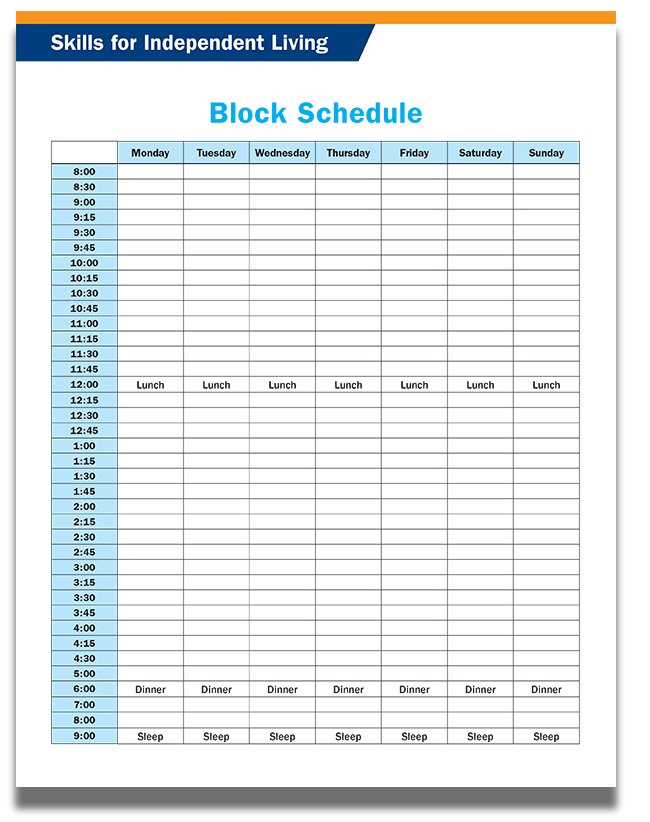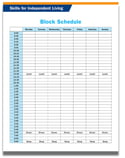
- Life Skills
What Does Transitioning Home for Summer Break Look Like for CIP Students?
Transitioning home for summer break can present unique challenges for students at the College Internship Program (CIP). While students are often excited about spending time with their families and enjoying a break from their usual routines, they also experience the loss of the structure and support systems that have been integral to their success throughout the year. To help ease this transition, CIP centers implement a structured process designed to prepare students for the break. With the right strategies, parents can play a vital role in ensuring a smooth adjustment during this period away from CIP.
Preparing for Summer Break: The CIP Approach
At CIP, our priority is to equip students with the tools they need to thrive during their time away from our centers. Our Advisors work closely with students on overall planning for the break, ensuring they are prepared to manage their schedules, appointments, and responsibilities independently. This preparation includes:
- Doctor appointments, banking, and budgeting: We guide students in planning any necessary appointments and managing their finances, such as budgeting for the break or addressing banking needs.
- Exploring job or community service opportunities: We encourage students to seek potential jobs, internships, or community service activities to maintain skill development.
- Social planning: Students are also prompted to reconnect with friends and make plans for social interactions before returning home, supporting their social well-being.
In the Life Skills Department, our team assists students with practical tasks, such as packing and reviewing their Executive Functioning (EF) checklists. These tools, coupled with personalized transition plans, empower students to manage their routines and responsibilities while on break.
Sample Transition Plan: Summer Break Recommendations
Executive Functioning
- Maintain a routine: Establishing a daily routine that includes both leisure and obligatory activities is critical. Creating a block schedule that outlines specific times for tasks helps students manage their time effectively, reducing anxiety and increasing their confidence.
- Task completion and tracking: Encourage students to check off tasks as they complete them throughout the day. This visual tracking helps with organization and communication, allowing others to understand what the student has accomplished and what they still need to do.
Morning Routine
- Consistency is key: Waking up at the same time every day provides structure and helps maintain regular sleep patterns.
- Hygiene routines: Daily showering, shaving, brushing teeth, and grooming are essential habits to reinforce. Skipping these tasks can hinder the development of a solid routine.
- Medication management: Students should continue to take medications as prescribed, ensuring they set reminders or alarms to maintain consistency.
- Preparation for the day: Encourage students to get dressed and eat breakfast each morning, even if they do not have plans to leave the house. This sets the tone for a productive day.
Social Skills
- Plan face-to-face interactions: Students should make time to meet with family and friends. Face-to-face interactions allow them to practice reading body language and interpreting facial expressions, crucial for social development.
- Engage in conversations: Remind students to ask questions and show interest in others to enhance their communication skills.
- Limit downtime: Too much unstructured time can lead to isolation. Help your student plan activities to stay engaged and socially connected.
- Practice flexibility: Encourage students to try new foods, activities, or hobbies. This fosters adaptability and provides them with more conversational topics when socializing.
Life Skills
- Continue routines: Maintaining the life skills routines established at CIP is crucial. Students should continue with tasks such as cooking, cleaning, and personal hygiene independently.
- Stay active: It’s important for students to leave the house regularly, even for short walks or errands, to avoid falling into a sedentary lifestyle.
Outdoors and Wellness
- Get outside daily: Aim for at least 30 minutes of outdoor activity each day. Fresh air and physical movement contribute to both physical and mental well-being.
- Medication adherence: Students should continue taking their medications as scheduled. Use alarms and reminders to help keep them on track.
Evening Routine
- Complete tasks before leisure: Encourage students to complete their evening hygiene, room cleaning, and next-day preparation before engaging in leisure activities such as gaming or web surfing. This helps reinforce the importance of routine.
- Plan for the next day: Before bed, students should check their block schedule and set out clothing or materials they’ll need for the next day.
Student Responsibilities Over the Break
To ensure a productive and fulfilling break, students must continue working on the core competencies they developed at CIP. These include:
- Life skills: Maintaining hygiene, waking up at reasonable times, completing household chores, and using their cooking skills to prepare meals independently.
- Academics: If academic work is part of their summer plan, students should stick to a structured study schedule. This keeps them engaged with their learning and prevents procrastination.
- Career development: Students should pursue volunteer or internship opportunities that align with their career goals. These experiences will help reinforce the skills they have acquired at CIP.
- Social skills: Regular interaction with family, friends, and new acquaintances will help students practice the social thinking skills they’ve developed. Encourage meaningful engagements to support their social growth.
- Wellness: Students should stay active by finding local gyms, going for walks, or participating in other physical activities. A healthy routine will support both their mental and physical well-being.
How Can Parents Help?
Parents play an essential role in maintaining the structure that supports their student's continued development. Here are a few ways you can assist:
- Establish clear rules and expectations: Outline expectations for daily tasks such as cleaning, grocery shopping, and cooking. Encourage your student to manage these responsibilities independently, but be available to offer support as needed.
- Keep them engaged: Help your student find volunteer opportunities or part-time jobs related to their field of study or interests. Staying busy with meaningful activities will help them maintain the progress they’ve made during the school year.
- Plan social activities: Organize gatherings with family and familiar friends to help your student stay connected. Social activities provide opportunities to practice social thinking skills and avoid isolation.
Supporting a Seamless Transition
With the right preparation and support, CIP students can thrive during summer break and return in the fall ready to continue their journey toward independence. To assist with this transition, we provide parents with resources such as the Morning and Evening Routine sheet from our Autism and Learning Differences Teaching Toolkit, which can help students stay on track.
By maintaining structure, continuing skill development, and reinforcing independence, you can ensure that your student's break is both productive and enjoyable, setting them up for continued success in the upcoming term.
Download:
Here is a printout parents can use to keep their students on track – the Morning and Evening Routine sheet from our Autism and Learning Differences Teaching Toolkit.
About College Internship Program
The College Internship Program is a comprehensive transition program for young adults on the Autism Spectrum and with Learning Differences. Our Mission is to inspire independence and expand the foundation on which young adults with Autism, ADHD, and other Learning Differences can build happy and productive lives.


